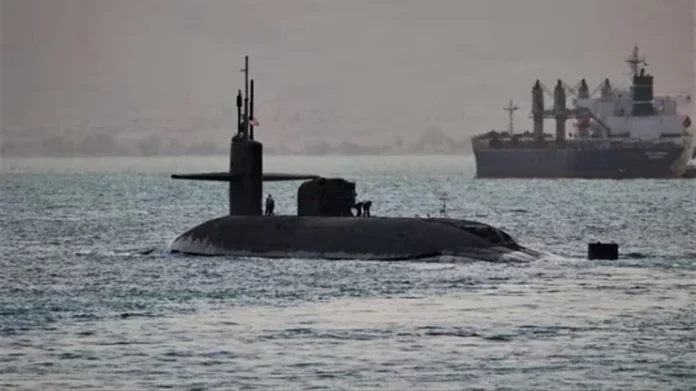New Delhi: Looking forward to bag the contract for the Indian Navy’s long-delayed Project 75 (India), German submarine manufacturer thyssenkrupp Marine Systems’ (TKMS) India head Khalil Rahman said that the company was initially not inclined to bid for the Indian Navy’s mega deal for six conventional submarines under Project-75I due to the “terms and conditions”, but later entered the fray as the German government backed the project.
Six conventional submarines will be built with the state-of-the-art proven fuel-cell air independent propulsion (AIP) system, supposed to be working in tandem with lithium-ion batteries under the P75I project. As demanded by the Indian Navy, the combination of these two new technologies will be a force multiplier for India as the submarines would be able to stay underwater for nearly 12 days straight. Currently, the submarine has to surface every two to three days to recharge its batteries. An AIP module enables conventional submarines to remain submerged for longer duration thereby improving endurance as well as stealth.
Expressing confidence during a media interaction, Rahman said that they successfully demonstrated the Air Independent Propulsion (AIP) capability, the key determinant in the deal, on their Type 212 submarine in the evaluation conducted by the Navy recently.
“Technically we are in a very strong position. Indian Navy is very happy with the Type 209s in service. We have a sea-proven AIP. Our design will be specifically tailored to India and will ensure stealth in the waters… As per terms of the Request For Proposal (RFP), the P-75I design will be handed over to the Indian Navy,” he said.
thyssenkrupp Marine Systems has pitched a customised version of its Type 214 for the Indian Navy’s requirements. The Indian Navy having completed the field evaluation trials of the AIP system, offered by TKMS and Spanish firm Navantia, is now making a technical report which will then be submitted to the naval headquarters.
Estimated at over Rs 43,000 crore, the mega-submarine deal under Project-75I, crossed a major milestone with the completion of Field Evaluation Trials (FET) to check the compliance of the bids received. There are two contenders in the fray – Germany’s TKMS and Navantia of Spain. While an Indian Navy team visited TKMS shipyard in March for FET, the evaluation of Navantia’s offer was conducted in the last week of June.
thyssenkrupp Marine Systems CEO, Khalil Rahman said, “We are very confident of our proven AIP technology and are in the final stages of the design concept with MDL, which will incorporate the stealth features.” Adding, “Unlike the regular submarines, which are more rounded, the design for the Indian project is angular, which will give it lower sonar signatures, that is, stealth features.”
“The German government historically regarded India as a market and partner, and it was really after the invasion of Ukraine that there was a “change of thinking” in the German government, when it was felt that it was very necessary to enter into a deeper partnership with India,” he added.
While TKMS has partnered with Mazagon Dock Shipbuilders Limited (MDL), Navantia has partnered with Larsen & Toubro. TKMS has promised a full transfer of technology as demanded by the Indian Navy and stressed that the German government will stand guarantee.
While TKMS is designing the new submarine, it will hand over the design to the Indian government as mandated by the Navy, Rahman said.
According to thyssenkrupp Marine Systems CEO, the FET was only to demonstrate AIP and not to demonstrate the submarine in general, and stipulations in the RFP were very clear in regard to demonstrating a “sea-proven AIP”. The TKMS AIP on offer will be both fuel cell- as well as Lithium Ion-based, giving it enhanced performance.
As per the RFP, the first submarine should have indigenous content (IC) of 45% which should go up to 60% for the sixth and last submarine. Also, it stipulates that the first submarine be rolled out 84 months or seven years from the signing of the contract. With both the FETs completed, the Indian Navy will submit a technical report to the Defence Ministry, after which staff evaluation would be done to determine who all have complied.
In 2019, the Defence Acquisition Council had cleared the P75I project. The P75I project is part of a 30-year submarine-building plan that ends in 2030. As part of this plan, India was to build 24 submarines — 18 conventional submarines and six nuclear-powered submarines (SSNs) — as an effective deterrent against its adversaries.
During the upcoming high-level talks with both Germany and Spain, the submarine deal is expected to figure prominently. German Chancellor Olaf Scholz is scheduled to visit India in the second half of October for inter-governmental consultations while Prime Minister Narendra Modi is likely to visit Spain in the next few months.
Navantia has offered a submarine based on its new S80 class of submarines, the first of which was launched in 2021 and was commissioned into the Spanish Navy as S-81 Isaac Peral last November. L&T will be responsible for constructing the submarines.
TKMS has built 175 submarines since World War II and there are 52 AIP-equipped submarines either operating across the globe or contracted, according to the company officials.





